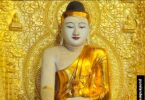 Previous Section | Contents | Next Section
Previous Section | Contents | Next Section
(Only relevant instructions are listed here, while pointless customs are omitted.)
(以下只列出相关说明,无益习俗则省略。)
[1] Appointment: When well, or when dying but conscious, one should appoint two persons to take charge of implementing all instructions in this book. Their contact information should be made available to immediate family members after filling in the first page of this book [which is only available in the hardcopy], which should be kept close by. Should the main person not be available when one is unconscious or unable to communicate, the second person should stand in.
[1] 事先约定:在健康,或临终清醒时,应当委托两位可信人士负责实行本书的所有指示。他们的联系资料应当在第一页填写后,让直系亲属得知,并且收藏在近处。如果当事人失去意识,或无法沟通,而无法联络到首位委托人,第二位委托人就得顶替支助。
It is best to prepare in advance, both a living will (for carrying out these instructions should one be alive but unable to communicate), and a last will (for carrying out instructions should one be deceased, which should include Dharma donations for merit-making too).
最好提前预备生前遗嘱(为交代当事人还活着,但无法沟通时,该执行的指示),与死后遗嘱(为交代往生后,该执行的指示,包括为弘扬佛法,制造功德的捐献等事)。
All these wishes, especially to follow the instructions in this book, should be clearly shared with all crucial family members to avoid conflicts when dying or after death.
当事人应当对主要家属清楚说明所有意愿,尤其是要按照本书而行的意愿。这将能避免死亡前后起冲突。
[2] Life-Sustaining Treatment (Life Support): If the dying person is unconscious and already on any life-sustaining treatment (e.g. mechanical ventilator with intubation) that prolongs life, even when it cannot cure the terminal sickness, it should not be ended before natural death, as doing so might disturb the consciousness, abruptly forcing it to leave the body, to possibly be reborn in an unfortunate realm due to agitation, pain, fear, confusion and lack of readiness.
[2] 维持生命的治疗(生命维持系统):如果临终者失去意识,又已经在接受维持生命治疗(例如使用气管插管机)延长寿命,即使不能治愈绝症,也不应该在自然死亡前终止。因为这样做可能会扰乱他的神识,突然强迫神识离开身体,而在情绪激动、痛苦、恐惧、困惑和缺乏准备的情况下,不幸轮转到恶道。
Even with no hope of revival or recovery, if the body is alive, the consciousness is within (although possibly sometimes not). For prolonged and possibly painful cases, there should be more sincere guidance and support-chanting to encourage the dying person to Niànfó (be wholeheartedly mindful of the name of Āmítuófó) to be reborn in Pure Land swiftly. Merits from Niànfó should also be shared for relief of suffering. (See page 90 for ‘Verse For Sharing Of Merits’.)
即使没有希望苏醒或恢复,如果身体还活着,神识还在体内(虽然偶尔可能不在)。在长时间和极为痛苦的情况下,应当更真诚给与引导和助念,为鼓励临终者全心全意念阿弥陀佛,迅速往生净土。也应当回向念佛功德给病者,为解脱痛苦。(看92页《回向文》)
If one can help decide whether to have life-sustaining treatment or not, it can be refused if it only creates more pain and discomfort, which makes it more difficult to Niànfó well. However, there should be swift and ample sincere guidance and support-chanting before and after any decision.
若还未决定是否要接受维持生命治疗,而接受它将造成更多痛苦与不适,以致更难念佛,这时可以拒绝。然而,做什么决定前后,都应当迅速给与真诚和充足的引导和助念。
In the Singapore context, one has to carefully decide whether to personally opt in AMD (Advanced Medical Directive) or not. Opting in means to refuse in advance any life-sustaining treatment to be used to prolong your life should you become terminally ill and unconscious, and where death is imminent. (For updates and details, please see moh.gov.sg)
在新加坡法律下,您必须谨慎决定是否要亲自选择AMD(预先医疗指示)。选择AMD就是预先拒绝在垂危又失去意识的状态时,使用延长生命的任何维持生命治疗。(欲知最新讯息与详情,请看 moh.gov.sg)
The key consideration is whether such life-sustaining treatment will help or hamper ability to Niànfó well, such as by causing great pain or discomfort (e.g. from CPR by defibrillators or hand, cardiotonic injections). When uncertain, it is best to swiftly and sincerely pray to Āmítuófó for inspired advice, on what best to do.
主要该考虑的是维持的生命治疗是否将会帮助或阻碍顺利的念佛,比如,是否会造成巨大的疼痛或不适(如用除颤器或手进行CPR、注射强心剂等)。不确定时,最好迅速真诚祈求阿弥陀佛启发与引导,以得知什么是最好的选择。
Those who practise Niànfó well in everyday life are likelier to not have prolonged or painful dying processes, which will instead be swifter and less painful or painless. They are even able to depart before any need for life-sustaining treatment.
平时真诚修持念佛者,临终时比较不可能有持久性或痛苦的临终过程。他们反而能迅速,少痛或无痛往生,甚至能在不需要任何维持生命治疗前往生。
[3] Organ & Body Donations: Organ and body donations should perhaps be avoided if there is uncertainty that one’s consciousness can swiftly depart from the body before or upon being pronounced deceased.
[3] 器官与遗体捐赠:如果不能确定神识是否能在宣告死亡前后迅速离开身体,就应当考虑避免捐赠器官与遗体。
Due to lifelong habitual attachment to the body, the average donor’s consciousness is likely to remain within the body for some time, during which there will be cutting of the body for removing of organs, thus naturally experiencing pain magnified by nine times, with possibly corresponding magnified fear and anger, which might obstruct the ability to Niànfó well, and even lead to an unfortunate rebirth.
由于一生中,有习惯性对身体的执着,一般捐赠者的神识可能会逗留在遗体一段时间。在这段时间,为取出器官而切割身体时,捐赠者所感觉的疼痛会自然比生前强烈九倍。相应而生的恐惧和嗔恨也将倍增。这可能阻碍捐赠者顺利念佛,甚至导致不幸轮转到恶道。
Regret for an act of generosity destroys any positive karma created from it, while giving rise to the defilements above creates negative karma. Also, dissolution of the elements when dying might already be very disturbing. Thus, even those not easily irritated might become agitated when dying or just deceased.
捐赠器官与遗体时,如果后悔,会破坏任何布施所得的善业。反之生起以上的烦恼,将会造恶业。另外,临终者此时面临四大元素(地水火风)的分解,可能已经非常不安。因此,即使是生前不容易动怒的人,在临终或刚命终时也可能容易情绪激动。
Only those who have strong positive karma, strong negative karma or strong Niànfó Practice (or the equivalent) can have swift rebirths – in the higher realms, lower realms or Pure Land respectively.
唯有拥有强大善业、强大恶业、念佛功夫深、(或有相等修行者),才能分别迅速往生到善道、恶道或净土。
Although organ and body donations are noble, the priority of ensuring one reaches Pure Land for the swiftest training to become an enlightened Bodhisattva to help immeasurably more beings much more effectively and extensively should be considered.
虽然器官与遗体捐赠是高尚的行为,但应当考虑先保证自己能往生净土,以便迅速修成得道菩萨,能更为有效与广泛地救度更多无量的众生。
Should attachment to wanting to help with a few organs or one body lead to aversion that results in an unfortunate rebirth, with oneself becoming an unfortunate being who needs others’ help, many other unfortunate beings cannot be helped.
如果执着于几个器官,或一具遗体的捐赠,而生起瞋恨的烦恼,导致不幸轮转到恶道,不但不能帮助更多众生,反而自己成为也需要别人帮助的不幸众生。
Only if very certain that one can swiftly depart for Pure Land should one go for organ or body donation. When well now, one can also donate with one’s wealth, goods, time, energy, knowledge, blood, bone marrow, kidney, liver (partially), hair and such with less or no risks.
只有在非常确定能够迅速往生净土的情况下,才应该选择器官或遗体捐赠。现在健康时,可以选择捐赠个人的财富、物品、时间、精力、知识、血液、骨髓、肾、肝(部分)、头发等。所包含的风险较低,或根本没有。
In the Singapore context, HOTA (Human Organ Transplant Act) should perhaps be opted out, with MTERA (Medical Therapy, Educational and Research Act for body donation) not opted in if one is not yet a very confident Niànfó practitioner. Note that one who had opted out of HOTA will be given lower priority should one need a donated organ, although good Niànfó Practice can prevent and/or cure serious illnesses. (For updates and details on opting out, please see moh.gov.sg)
不是很有信心的念佛人,应当考虑退出新加坡法律下的HOTA(人体器官移植法令),并且不加入MTERA(医疗[治疗、教育及研究]法令)。必须注意的是,退出HOTA者需要器官时,会有比较低的优先权。然而,念佛修持得好,可以预防重病,或从重病中康复。(欲知最新讯息与退出详情,请看 moh.gov.sg)
[4] Euthanasia: With or without permission, even if there is extreme physical pain and/or mental agony, there should be no so-called ‘mercy killing’ of oneself, another, or by another, as this is essentially suicide, murder or inciting of murder respectively, which is extremely unlikely to lead to any release from suffering or to a good rebirth.
[4] 安乐死:无论经过或不经过允许,即使是身心极度痛苦时,都不应该为自己、帮他人、或叫他人帮忙于所谓的「安乐死」。因为这就是自杀、谋杀、或指使他人谋杀。这不但难以脱离痛苦,也难因此往生到善道。
Applying to putting animals to ‘sleep’ too, euthanasia is much more likely to lead to continuation of suffering in the next life instead, with the possibility of being reborn with similar illnesses due to abruptly interrupted ripening negative karma in the past life, and having died with a severely disturbed mind. This is thus somewhat ‘merciless killing’ in effect.
以上原则与动物「安乐死」的考量相同。突然斩断正在结果的恶业,加上临终时神识非常不安,可能导致这一世的痛苦延续到下一世,承受相似的病痛。所谓的「安乐死」其实是一种「无情的杀害」,并非安乐之道。
For prolonged and possibly painful cases, there should be more sincere guidance and support-chanting to encourage the dying person or animal to Niànfó to be reborn in Pure Land swiftly. Merits from Niànfó should also be shared for relief of suffering.
对于持久性与可能非常痛苦的个案,应当有更多真诚的引导和助念,鼓励临终者(包括动物)念佛,迅速往生净土。也应当回向念佛功德给病者,为解脱病痛。
[5] Feeding: There should be no force-feeding for the dying person if it only creates more pain and discomfort, which makes it more difficult to Niànfó well.
[5] 喂养:如果会造成更多痛苦与不适,不应当强迫性喂养临终者,而导致更难顺利念佛。
[6] Painkillers: Painkillers can be used as long as they do not impair clarity of mind significantly. They should not be overused.
[6] 止痛药:只要止痛药不会导致临终者过于的昏沉,便可服用,但不应当过度使用。
The dying person should be encouraged to be sincerely mindful only of Āmítuófó (Niànfó), and not be mindful of any pain, which can ‘worsen’ with frustrations. Mindfulness of Āmítuófó instead not only takes the mind off the pain (as the mind can only have one thought at a time), it also connects to Āmítuófó’s blessings, which will lessen the pain, and even gives rise to bliss – which is why those who Niànfó often depart with peaceful smiles.
应当鼓励临终者用最真诚的心,专念阿弥陀佛,而不挂念任何疼痛。念痛只会起烦恼而令疼痛「恶化」。念阿弥陀佛不仅不去留意疼痛(因为心只能在每一刻有一个念头),也会感应到阿弥陀佛的加持力,而减轻疼痛,甚至生起安乐。这就是为什么念佛往生者经常带着笑容离世。
Sincere Niànfó also swiftens birth in Pure Land instead of letting pain prolong. As the person might be too distracted and discouraged by pain, there should be more sincere guidance and support-chanting to encourage the dying person to Niànfó to be reborn in Pure Land swiftly. Merits from Niànfó should also be shared for relief of suffering.
与其让痛苦延长,不如真诚念佛,迅速往生净土。由于临终者可能容易分心,也因为疼痛而气馁,我们应当给与更真诚的引导和助念,鼓励念佛,迅速往生。也应当回向念佛功德给病者,为解脱病痛。
[7] Home Return: When it is just a matter of awaiting for death, the dying person should be sent home swiftly, where there is a more comfortable and familiar environment, with greater ease and control of following these instructions.
[7] 回家:如果临终者已经到了等待往生之时,应当迅速送回家,因为家中环境比较舒适与熟悉,能更方便执行这些指示。
[8] Hospice Transfer: If it is not convenient to return home, the dying person should switch to a hospice which allows greater ease and control of following these instructions.
[8] 转移安宁病房:如果不方便送回家,临终者应当送往到安宁疗护中心,以便能更方便执行这些指示。
[9] Last Wishes & Messages: If the dying person wishes to communicate, swiftly ask for last wishes and messages through speech or writing, for noting, promising and conveying accordingly, so as to take the mind off the unfulfilled, to offer peace of mind, and to swiftly encourage focus only on Niànfó. Having a detailed will in advance helps.
[9] 最后意愿与遗言:如果临终者有意沟通,应当迅速通过言语或书写记录,并且答应传达,为速了心事得心安,而鼓励专注念佛。事先有准备详细的遗嘱会更加方便。
[10] Lasting Power Of Attorney: An LPA is a legal document that allows one to appoint a trustworthy person or more to decide and act on one’s behalf on matters of personal welfare, finance and property if one is alive but has lost mental capacity.
[10] 持久授权书:持久授权书是一份法律文件,用来委任一或多位可靠人士,以便自己如果还活着,但失去智力时,代表自己决定和管理福利、财务和财产等事。
The instructions here should be entrusted too. Having an LPA can lessen difficulties and confusion potentially faced by caregivers in the future. (For details in the Singapore context, please see msf.gov.sg)
这本书中的指示也应当受委托。有一份持久授权书可以减轻未来护理人员可能面临的困难与困惑。(欲知新加坡方面的详情,请看 msf.gov.sg)
© Shen Shi’an (Recirculation with permission via purelanders.com/contact)
Previous Section | Contents | Next Section
Get Now | Intro | FAQs | 100 Reasons To Get It
Praises | Launches | Media | Distribution
Gallery | Sample | Course






